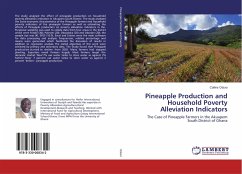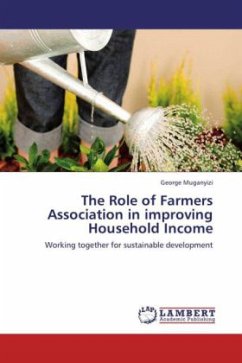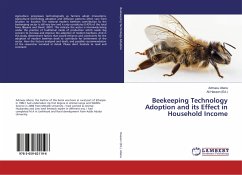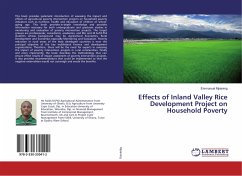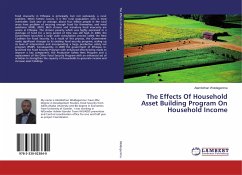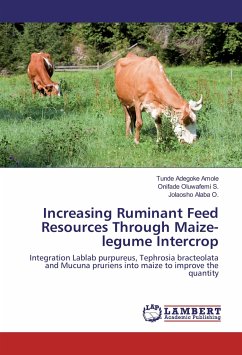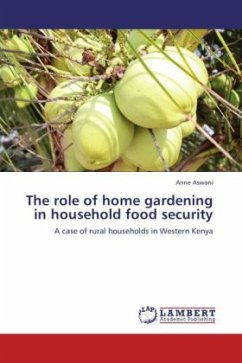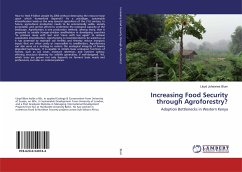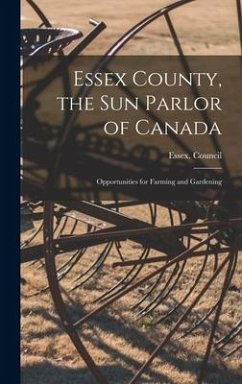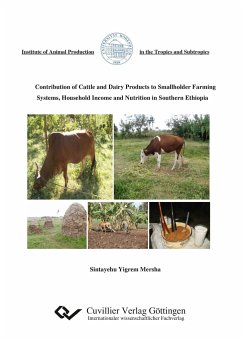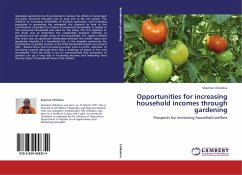
Opportunities for increasing household incomes through gardening
Prospects for increasing household welfare
Versandkostenfrei!
Versandfertig in 6-10 Tagen
36,99 €
inkl. MwSt.

PAYBACK Punkte
18 °P sammeln!
Vegetable gardening has the potential to reduce the effects of prolonged dry spells, recurrent droughts and an early end to the rain season. The evidence of increasing unreliability of dry-land agriculture, and increasing popularity in gardening has prompted this research to look at the contributions of gardens to incomes of communal households. A sample of 100 communal households was used for the study. The first objective of the study was to determine the relationship between intensity of gardening and the wealth status of the households. The results revealed that there was no significant re...
Vegetable gardening has the potential to reduce the effects of prolonged dry spells, recurrent droughts and an early end to the rain season. The evidence of increasing unreliability of dry-land agriculture, and increasing popularity in gardening has prompted this research to look at the contributions of gardens to incomes of communal households. A sample of 100 communal households was used for the study. The first objective of the study was to determine the relationship between intensity of gardening and the wealth status of the households. The results revealed that there was no significant relationship between the wealth status and gardening intensity of a household but, in the sampled community the contribution of garden income to the total household income was around 18%. Results show that increasing garden sizes had the potential of increasing incomes although there was a challenge of labour in the area interviewed. From the study it can be recommended that promotion of gardens can go a long way in increasing incomes and improving food security status of households hence their welfare



